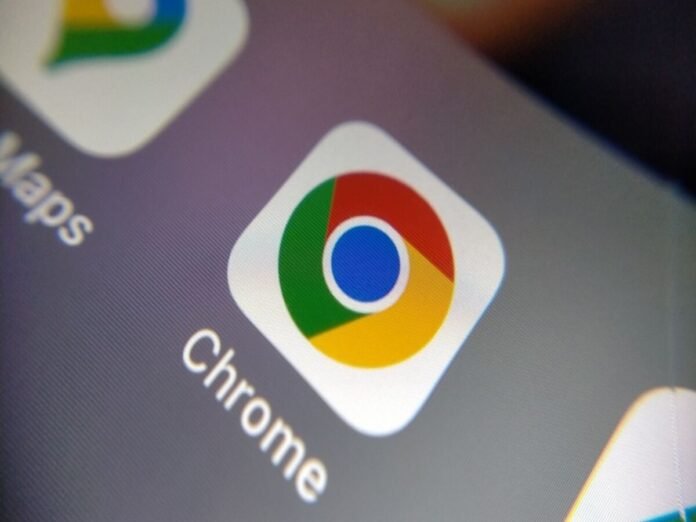In what could be a landmark decision, a U.S. judge has suggested that Google may need to break up significant portions of its business, including selling off its flagship Chrome browser, as part of an ongoing antitrust lawsuit aimed at dismantling the company’s monopoly. The ruling has sparked widespread interest in the future of the tech giant, whose influence stretches across everything from search engines to smartphones.
The Antitrust Case Against Google
Google, once a humble search engine with a mission to “do no evil,” has grown into one of the most dominant players in the global tech industry. But this dominance has not come without controversy. For years, regulators have raised concerns about Google’s control over the digital market, particularly in search and online advertising. Now, a U.S. District Court judge has weighed in on this issue, saying the company’s practices may violate antitrust laws.
In a decision handed down in August, Judge Amit P. Mehta of the District of Columbia ruled that Google had indeed violated antitrust laws by using its market power to stifle competition, especially in the search engine and digital advertising sectors. This ruling has set the stage for a potentially significant shakeup in how Google operates in the marketplace.
The next phase of the case is focused on determining which parts of Google’s sprawling business empire should be sold off to competitors in order to restore a competitive balance to the tech industry. According to the Justice Department, Google’s monopoly has created an unfair environment where smaller companies struggle to break through, especially in search and advertising.
Chrome: The Gateway to Google’s Search Dominance
One of the key recommendations from the Justice Department’s legal team comes from David Dahlquist, a lawyer involved in the case, who proposed that Google be forced to sell off Chrome, its industry-leading browser. Chrome, which has a market share of over 60%, has become not only a dominant browser but a key gateway through which millions of users conduct their online searches every day. Dahlquist argued that removing Chrome from Google’s portfolio would be a critical step in leveling the playing field.
“Chrome is a significant gateway to search,” Dahlquist said during a recent hearing. “Billions of dollars in search revenue flow through this browser. The divestiture of Chrome, when finalized, will give rivals access to a significant number of search queries, which would allow them to better compete with Google.”
The suggestion to sell off Chrome comes at a time when the digital search market is under intense scrutiny. Google’s search engine is so ubiquitous that it effectively controls the flow of information on the web, giving it an outsized influence over what people see and how they access information. Critics argue that this monopolistic control gives Google an unfair advantage, which could be undermined if Chrome were sold off to another company.
Google’s Defense: “Our Products Are Better”
Unsurprisingly, Google has pushed back against the idea of selling off its key assets. In a defense of its market position, Google’s legal team has insisted that people choose its products because they are simply better than the alternatives. The company has also argued that forcing it to divest Chrome or other key businesses would harm consumers by reducing the quality of its offerings.
“People don’t use Google products because they have no other choice,” said a Google spokesperson in a statement. “They use them because we offer the best products, and we continually innovate to meet the needs of our users.”
However, Judge Mehta and the Justice Department have expressed skepticism over this argument. While it’s true that Google’s products are highly popular, the court has raised concerns that this popularity is not entirely organic. Instead, it suggests that Google’s dominant position in the market has been reinforced through anti-competitive practices that prevent rivals from getting a foothold.
The Broader Implications for Google’s Business
The case against Google has significant ramifications beyond just the potential sale of Chrome. If the court finds that Google continues to maintain a dominant position after the sale of Chrome, the Justice Department has indicated that it may seek further action, including the sale of Android. Android is the operating system that powers the majority of smartphones globally, making it a crucial part of Google’s strategy in maintaining its market control.
Forcing Google to sell Android would be a seismic shift in the tech world, potentially opening the door for other mobile operating systems to challenge Google’s control over smartphones. While such a move would be unprecedented, it underscores the seriousness with which regulators are approaching this case.
Google’s Future on the Line
The outcome of this case will have lasting effects on both Google and the tech industry as a whole. If the court rules in favor of the Justice Department’s recommendation, Google could be forced to part with two of its most significant assets — Chrome and possibly Android. The company would then face the challenge of maintaining its dominance in a marketplace where competitors have a fairer shot at challenging its position.
For consumers, the implications are mixed. On one hand, increased competition could lead to more choice and better services. On the other hand, it’s possible that a fragmented digital landscape could lead to confusion, interoperability issues, and a less seamless experience across devices.
The Road Ahead: What’s Next?
The case is far from over, and Google’s legal team is expected to continue making its case for why its business model should remain intact. There are still several weeks of discussions and hearings ahead, with the judge set to hear more arguments before making a final decision.
If the case continues in its current direction, Google could be forced to make significant changes to its business operations, signaling a shift in how the tech industry is regulated. However, the outcome is far from certain, and the battle between Google and the U.S. government is likely to continue for years.
For more tech updates, visit DC Brief.


